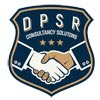Airline cabin crew members, commonly known as flight attendants, are responsible for ensuring the comfort, safety, and welfare of passengers during flights. Their role is critical in providing a positive travel experience while adhering to safety regulations.
Passenger Interaction: Cabin crew greet passengers as they boar
Passenger Interaction: Cabin crew greet passengers as they board and exit the aircraft, assist them in finding their seats, and provide special attention to those who may need extra help, such as the elderly or disabled.
Service Provision: They serve meals and refreshments during the flight, ensuring that all passengers are catered to according to their needs.
Safety Checks: Cabin crew check the condition and availability of emergency equipment and ensure that all safety information is communicated effectively to passengers.
Emergency Procedures: They demonstrate emergency equipment usage and safety procedures before takeoff and are trained to administer first aid if necessary.
Crisis Management: In emergencies, cabin crew must remain calm and manage situations effectively while ensuring passenger safety.
In-flight Services: They supply passengers with newspapers, magazines, and in-flight entertainment options while also selling duty-free goods and meeting sales targets.
Reporting Duties: After each flight, cabin crew members produce written reports detailing any incidents or observations during the journey.
Work Environment & Conditions
The role can be physically demanding due to long hours spent on their feet and dealing with various time zones. Cabin crew often work irregular hours including nights, weekends, and holidays. Many airlines require staff to live close to airports for quick access when on call.
Qualifications & Training Required
While a degree is not typically required for this position, qualifications in travel, tourism, hospitality management is beneficial .



